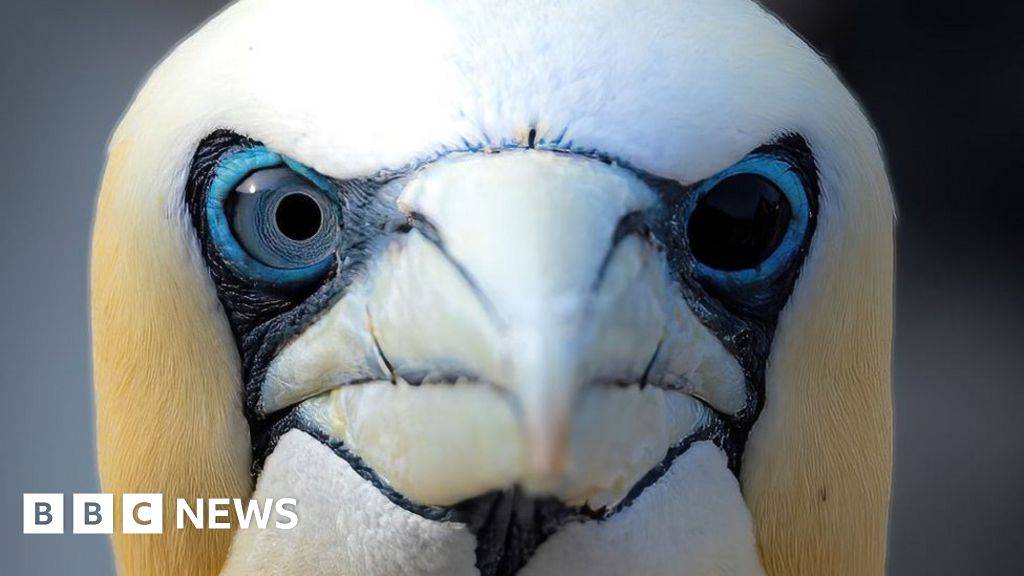In pictures: Bass Rock’s black-eyed flu survivors

Image source, Rebecca James
Rebecca James’ images included two birds – one with the eye colouration, pictured left – greeting each other after returning from sea
An eye colouration found in seabirds that have survived avian flu has been captured in striking images taken at Scotland’s Bass Rock.
Northern gannets with black irises instead of the usual pale blue were first spotted on the island in the Firth of Forth in June 2022.
The results of blood tests, revealed last month, showed the birds had previously survived the infection.
Rebecca James’ images were taken on a visit to Bass Rock this month.
Ophthalmology tests would be needed to help scientists find out what causes the gannet’s eyes to turn black.
Bass Rock, north-east of North Berwick, is home to the world’s largest colony of Northern gannet.
The birds migrate from west Africa to breed in Scotland, but in recent years their numbers have been badly hit by avian flu.
Image source, Rebecca James
Further testing would be needed to identify what causes the colouration
Ms James took her photographs on a long awaited boat trip to Bass Rock to see the gannets.
She said: “After four attempts it was fifth time lucky and I managed to get on Bass Rock to photograph the visiting gannets.
“Those that survived the avian flu outbreak last year are showing changes to eye colour.
“I captured a picture of a breeding pair – one with the black and blue eye combo – greeting each other after returning from sea.”
A team made up of experts from RSPB Scotland, the universities of Glasgow, Edinburgh, Heriot Watt and the Animal Plant Health Agency worked with the Scottish Seabird Centre to investigate the eye colouration, and health of the gannets.
Bass Rock can have as many as 150,000 at the height of the breeding season.
The team’s study found the adult birds’ survival between 2021 and 2022 was 42% lower than the preceding 10-year average because of avian flu.
Image source, Getty Images
Bass Rock is home to the world’s largest colony of Northern gannets













